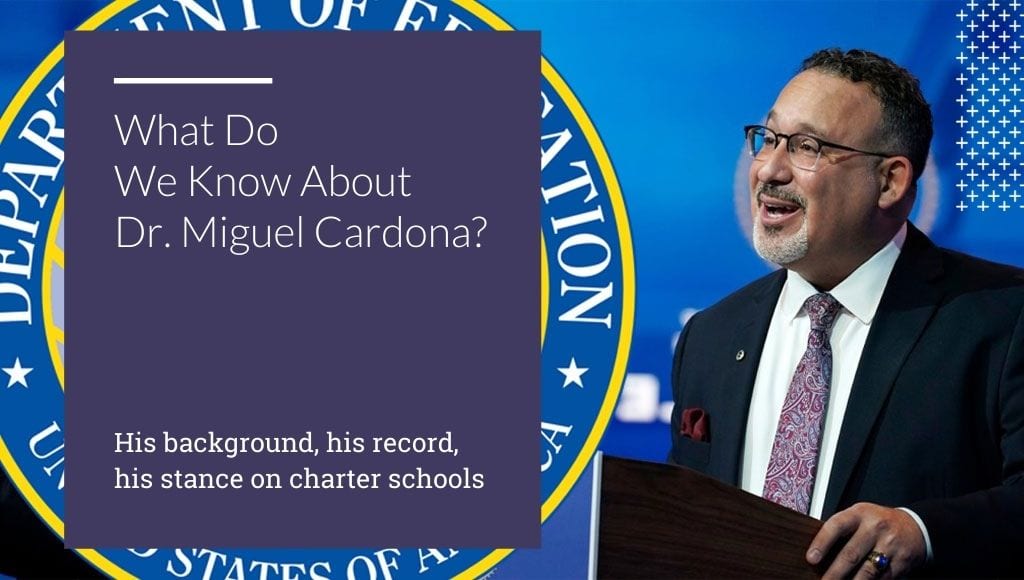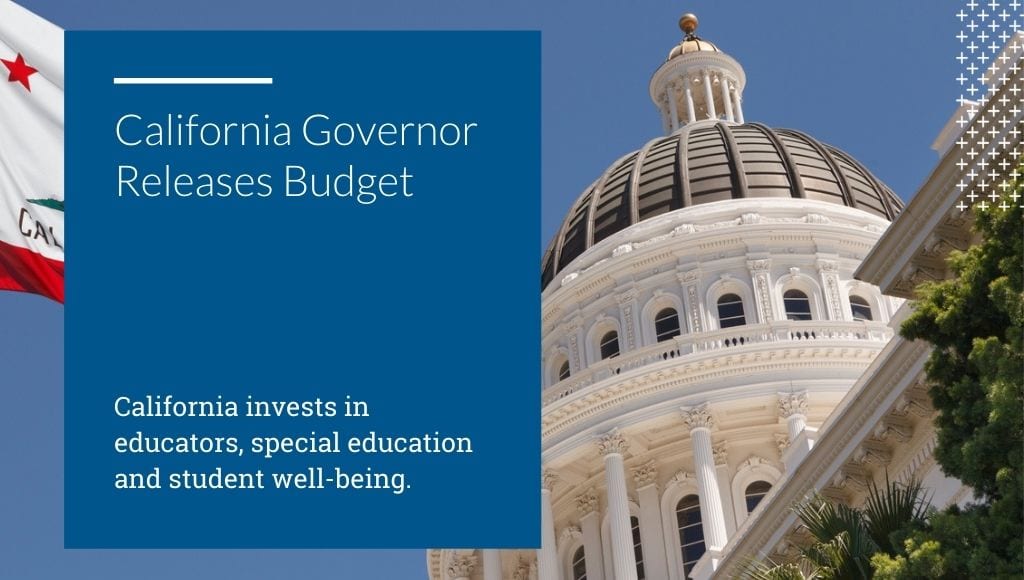
We recently wrote a blog post, asking which of the top likely picks for Secretary of Education our audience would have selected. While several of you expressed misgivings about Betty Rosa, Denise Juneau, Rep. Frederica Wilson, Lt. Gov Jacqueline Coleman and Rep. Jahana Hayes, all other options were met with mild approval.
None of our sources had mentioned Miguel Cardona – and he was not on our list. So what do we know about this dark-horse pick?
According to the Boston Globe, Miguel Cardona is a former public school teacher and principal, and he’s been the Connecticut Education Commissioner since 2019. Having attended public schools as a child, Secretary Cardona obtained multiple degrees at the University of Connecticut, including a Master’s Degree in Bicultural Education and a Doctorate in Education.
The Courant describes his childhood as a “goofy, little Puerto Rican kid” who grew up in a public housing project in Meridien.
From InsideHigherEd we learn that Dr. Cardona was the youngest principal in Connecticut when he became head of the Hanover Elementary School in 2003, at the age of 28. He was an assistant superintendent and rose quickly to his current position as head of K-12 education in the state.
From his official page, we learn Dr. Cardona served as the co-chairperson of the Connecticut Legislative Achievement Gap Task Force as well as co-chairperson of the Connecticut Birth to Grade Three Leaders Council. He also taught for four years as an adjunct professor at the University of Connecticut in the Department of Educational Leadership.
We can perhaps get a sense of the man through this segment of his recent speech:
“For too many students, public education in America has been a flor pálida: a wilted rose, neglected, in need of care,” he said. “We must be the master gardeners who cultivate it, who work every day to preserve its beauty and its purpose.”
“For far too long, we’ve allowed students to graduate from high school without any idea of how to meaningfully engage in the workforce while good-paying high-skilled, technical, and trade jobs go unfilled. For far too long, we’ve spent money on interventions and Band-Aids to address disparities instead of laying a wide, strong foundation of quality, universal early childhood education, and quality social and emotional supports for all of our learners,” he said. “For far too long, we’ve let college become inaccessible to too many Americans for reasons that have nothing to do with their aptitude or their aspirations and everything to do with cost burdens, and, unfortunately, an internalized culture of low expectations.”
The great news for charter schools: Miguel Cardona is a straight-shooter. And, while firmly entrenched in the Left, he is likely to be a friendly voice for charter schools.
Dr. Cardona did come down hard on the Achievement First charter network in 2020, for what he described as “the network’s repeated non-compliance with state regulations.” What many might have missed in that story is that Miguel Cardona, in his Connecticut leadership role in education, has been a charter school authorizer. This makes him the third of the last four Secretaries of Education who takes on that role after acting in an oversight capacity in charter authorizing work. (As the Fordham Institute reminds us, Secretary Ame Duncan led the Chicago Public Schools, currently responsible for 122 charters, Secretary John King was the NY Commissioner of Education, where a Board of Regents acts as authorizer over 93 charter schools. Betsy DeVos was the only Secretary in recent history who had never held any position of responsibility in charter authorizing networks prior to taking on the role.)
Another reason Dr. Miguel Cardona will make a good Secretary of Education is his intense appeal among those in Education.
“Teachers love him,” said Yale University professor Walter Gilliam, as quoted by the74million. “The teachers and administrators at this conference on educational equity were so incredibly excited that he was there in their school district. The buzz there was like there was a rock star in their school auditorium.” (Prof. Gilliam was speaking at a school district conference where Cardona was the keynote speaker.)
EdSurge summarizes it well: Teaching experience. An advocate for programs supporting underserved learners. A focus on tackling the digital divide and resource inequities laid bare by the pandemic.
To this, we’ll add, a strong voice in the championship of racial minorities and underserved student populations.
Everything we know thus far about Miguel Cardona leads us to expect from him a uniting influence, a voice of reason in the district-school vs. charter-school divide.
And such a voice of reason is very much needed at this time. Dips in college enrollment in low-income students have education leaders worried, and charter schools have shown their excellence: charter school alumni graduate from college at rates two to four times higher than the national average.
